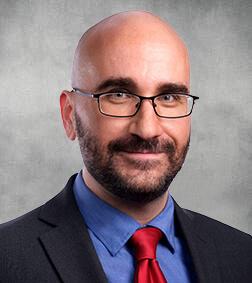Exposing a Minor to Pornography in Florida
Protect Your Future with Florida Child Pornography Lawyers
Florida and the United States as a whole make every effort possible to protect children from being exposed to images that could be harmful to them. This includes pornographic images. Local and federal authorities will actively prosecute any individuals or businesses that expose a minor to pornography. Florida State Statute 847.013 states that anyone who knowingly exposes a minor to pornography can be charged with this sex crime.
If you are suspected, accused and subsequently charged and convicted of exposing a minor to pornography, it is imperative that you retain the services of a highly experienced Florida child pornography lawyer from Musca Law immediately upon being charged. Failure to do so could impede your personal life, your business life, and your future. Make sure that you know your rights, while we make sure we have all angles of your defense covered.
Definition & Consequences of Exposing a Minor to Pornography in the State of Florida
To be convicted of exposing a minor to pornography in the State of Florida it has to be proven that you have knowingly exposed a minor to a video, image, movie, presentation or exhibition that you knew was pornographic in nature and would be harmful to the child. Anyone who knowingly sells or rents videos, images, or movies, videos, can be charged with violating Florida State Statute 847.013.
- Misdemeanor of the first degree
- Prison time of up to 1 year
- Fines of up to $1,000
- Increased penalties for repeat offenders
You will face incarceration and hefty fines. If you are found guilty of exposing a minor to pornography, you could also face additional sex crime charges, including lewd or lascivious exhibition, or child abuse.
At Musca Law, our attorneys rigorously defend clients and fight to win an acquittal or the best favorable result in all types of sex offense criminal cases. This is what our firm does, and our client reviews and results and speak for themselves. In Florida, sex crimes involving children are punished nearly as relentlessly as a murder charge.
According to Florida Statute 847.013, it is against the law to intentionally expose a minor child to movies, exhibitions, presentations, shows, or images that are considered sexually explicit or harmful, including nudity, bestiality, sexual excitement, sexual conduct, sexual battery, or abuse.
Whenever nudity or pornography is involved, individuals are forbidden from:
- Deliberately selling an admission ticket to a minor child to a representation or movie depicting sexual behaviors.
- Intentionally selling, exhibiting, or renting a sexually explicit movie to a minor in exchange for monetary consideration.
- Deliberately selling, loaning, or renting a videotape, DVD, Blu Ray, or movie on digital file to a minor child that includes this kind of material.
However, Florida Statute 847.013 does not apply when a parent accompanies a minor as it is assumed the parent would filter any harmful depictions and explain the nature of the representation and the movie.
Defining the Legal Terms "Intentionally" and "Deliberately"
In Florida, an individual may only be charged and convicted of Exposing a Minor to Pornography if there is evidence that they intentionally exposed a minor to harmful material. Under Florida law, the words intentionally and deliberately are defined as a person having general understanding of, a reason to understand, or a belief that justifies further inspection of:
- The content and character of the material
- The minor child's age.
What Qualifies as Harmful Material to Minors in Florida?
Under Florida law, a person cannot be convicted of exposing a child to pornography or harmful material unless the prosecutor is able to present evidence that the presentation, movie, or exhibition purportedly shown to the child was harmful. According to Florida State Statute 847.001, the legal term "harmful to minors" denotes any presentation, reproduction, exhibition, or description that portrays sexual conduct, nudity, or sexual excitement, when it:
Is considered offensive to local community standards and what is regarded as suitable viewing material for children,
- Appeals to a shameful or erotic interest,
- Displays nudity, specifically the showing of the genitals, pubic area, or buttocks, if the subjects are not covered by fully opaque clothing,
- Is lacking serious literary, artistic, scientific, or political value for minors,
- Shows the breast or clothing fails to cover the nipple.
- Provide representations of sexual excitement and depict the genitals in a state of arousal.
The content of a movie, show, or exhibition must satisfy these definitions before a person can be convicted of exposing a minor to pornography.
Application and Enforcement of the Law
Florida Legislature in an attempt to execute the enforcement of the law uniform throughout the state preempted all current county ordinances related to the exposure of minor children under the age of 17 years old to harmful representations and movies. Moreover, cities and counties are prohibited from ratifying any new ordinance related to what the state of Florida states qualifies as the exposure of minors to pornographic materials.
Exposing a Minor to Obscene Material in Florida
In Florida, it is also illegal to intentionally loan, sell, rent, transmit or distribute any obscene material to a child. Material is deemed obscene if it meets the following test:
- The average person, when applying their community standards, would determine that the material appeals to a sexual interest.
- The material portrays sexual behavior in an offensive manner.
- The material lacks serious scientific, political, artistic, or literary value.
Under Florida Statute 847.001, several materials fall under this category, including:
- Books
- Cards
- Comic books
- Drawings
- Images
- Magazines
- Movies
- Newspapers
- Pamphlets
- Periodicals
- Pictures
- Photographs
- Recordings
Individuals charged with this criminal offense will face third-degree felony charges, which are punished with up to 15 years in prison and a fine of up to $10,000.
Florida Sexting Laws and Exposing Minors to Pornographic Images
Florida is one of a few states that enacted legislation that specifically addresses the legal issues concerning teenagers engaging in "sexting." Florida's Sexting Law grants prosecutors a charging option that allows minors (children under the age of 18) to evade sex offender registration and a felony criminal record.
Sexting pertains to the sending of sexually explicit images or nude photos with others using smartphones, the Internet, tablets, computers, or any other communication device. Teenagers who engage in sexting could face severe consequences. Especially, if one of the teens is over 18 years of age.
Some states punish sexting under preexisting laws against child pornography and child enticement, which usually have severe penalties.
Florida Laws Governing Sexting by Minors
Florida law does prohibit sexting between children under the age of 18. A first violation does not result in criminal penalties. However, subsequent violations can be punished with criminal penalties.
Sexting by Minors - Prohibited Acts in Florida
Sending - Minors violate Florida's sexting law by deliberately using an electronic communication device to send any image or video that depicts nudity and is harmful to another minor.
Receiving - A minor would also violate Florida's sexting law by receiving or possessing a nude image that was sent by another minor. Unless the receiver did not ask for the photo and did not transmit or distribute the photo to other minors, and took steps to report the incident to a guardian, law enforcement official, or school official.
Florida Sexting Violations & Penalties
First violation - For a first sexting violation, the minor receives a noncriminal citation that provides the following options for punishment:
- Pay a $60 fine.
- Complete (8) eight hours of community service.
- Mandated participation in a cyber-safety program.
- Contest (challenge) the citation in court.
The minor child has 30 days to complete one of the punishments.
Should the minor dispute the citation and lose their case, the court may order any of the above three options. A minor who did not respond to the sexting citation may be ordered to appear in court after finding the minor in contempt of court. The court might impose additional punishment such as suspending the teenager's driver's license.
Prohibited Defenses in Exposing a Minor to Pornography in Florida
Defendants convicted in the state of Florida are not permitted to raise any defenses referencing the child's age, including that:
- The defendant was not aware of the minor child's age.
- The minor child lied about their age.
- The defendant had a "bona fide belief" that the minor child was 18 years old or older.
- The minor child consented to observing the material.
Even though defendants are not permitted to establish the defense concerning a minor child lying about their age, minors who misrepresent their true age could face separate criminal charges. This law also applies to any person accompanying a minor who has lied about whether the child is 18-years-old or underage.
Individuals accused of violating this statute could be charged with a first-degree misdemeanor, which is punished with up to (1) one year in prison and a fine of up to $1,000.
Call (888) 484-5057 for a Free Case Evaluation with Musca Law!
If you don't know the age of the minor or the minor lies to you about their age, you may have a valid defense. To determine your best options, retain the services of a professional Florida child pornography attorney. Failure to do so will affect every aspect of your life. You could spend more time in prison, and face heavier penalties if you are not properly represented in court.



































